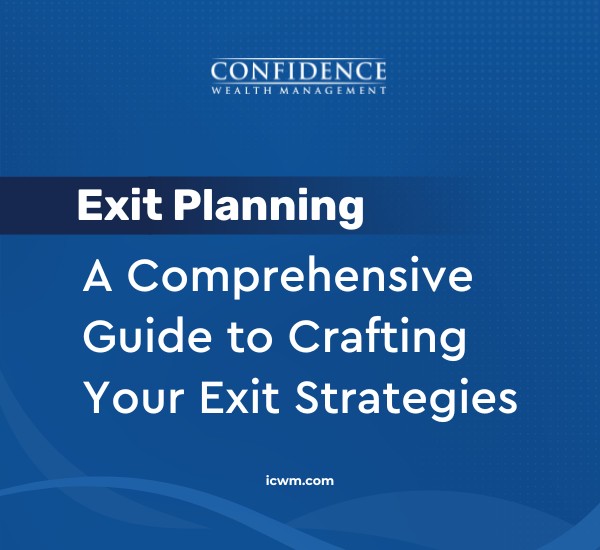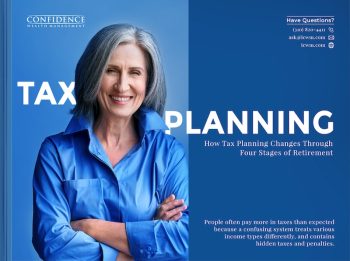Imagine you’re a business owner who’s getting ready to retire. You have partners, investors, and possible heirs who want to be sure the business stays on track after you leave.
How do you ensure that all these demands are met? Enter the buy-sell agreement.
A buy-sell is a legally binding contract that establishes when, to whom, and at what price an owner, shareholder, or partner can sell their interest in a business.
A typical buy-sell allows a business entity or other business owners the opportunity to buy a departing owner’s interest at a predetermined price.
A buy-sell agreement has many benefits for a company with two or more owners, such as:
- Allowing the business and its remaining owners to protect themselves from future adverse consequences that could result from an owner’s sudden departure.
- Keeping unwanted outsiders from acquiring a stake.
- The ability to fix the purchase price as the taxable value of a business.
- This is an especially useful tool in estate planning by minimizing the possibility of unfair treatment to an
owner’s heirs. - It also helps that the IRS accepts this price as the taxable value for estate tax reasons.
- This is an especially useful tool in estate planning by minimizing the possibility of unfair treatment to an
- Minimizing the possibility that the funds won’t be available when needed, since funding for buy-sell agreements is usually arranged when the buy-sell is executed.
How Does a Buy-Sell Agreement Work?
It can be a separate agreement or created by including buy-sell provisions in a business’ operating agreement.
A buy-sell must identify the potential buyers, any restrictions and limitations, and the conditions under which a sale will occur.
Sale-triggering events usually include:
- Passing away
- Long-term disability
- Retirement
- Divorce
- Personal insolvency or bankruptcy
- Criminal conviction
- Loss of professional license
- Resignation or termination of employment
A buy-sell should set out the purchase price or the formula for determining the purchase price. If this is not determined, you could open the business up to potential lawsuits and lengthy disputes.
Fixing the Estate Tax Value of a Business Interest
One of a buy-sell agreement’s advantages is the ability to fix the purchase price as the estate tax value of a deceased owner’s business interest, which can help avoid future valuation problems with the IRS.
Careful drafting is essential when using a buy-sell for this purpose. To pass muster:
- The estate must be obligated to sell the business interest at the price outlined in the buy-sell.
- The buy-sell must place certain restrictions on lifetime transfers of the business interest.
- The value of the business interest must be fixed by, or determined from, the buy-sell.
- The buy-sell must be a bona fide business arrangement and not a transfer for less adequate compensation.
When a buy-sell involves family members you must also prove that the transaction is comparable to arms-length sales between unrelated persons and was entered into for true business purposes.
Determining the fair value of a business may require an independent business valuator. Not doing so opens you up to potential IRS penalties for understating the value of an asset.
For a buy-sell to be successful, the funds must be available to carry out its terms. Without a funding plan in place, the buyer(s) may be forced to sell assets, take out loans, or even file for bankruptcy.
There are several ways to fund a buy-sell, including:
- Cash
- Borrowings
- Self-canceling installment note
- Private annuity
- Stock redemption
- Sale-leaseback
- Appreciated property bailout
- Deferred compensation
- Life insurance
- Disability insurance
Factors to think about when which method to use include:
- Business structure, size, and tax bracket
- Number of owners, their ages, tax brackets, and ownership percentages
- Levels of cash or credit available to the business or the owners
- Type of buy-sell agreement
Depending on the circumstances there can be several options available.
Structuring Buy-Sells
You can structure buy-sells to meet the needs of both the business and the owners, taking taxes and personal goals
into consideration.
There are four basic structures of buy-sells, with some possible combinations. Here are some brief descriptions of each:
- An entity purchase buy-sell – This obligates the business to buy the interests of each departing owner.
- Cross purchase buy-sell – Each owner agrees to buy a share of a departing owner’s interest. The business is not a party to this form of a buy-sell.
- A unilateral or one-way buy-sell – This is used when only one owner is selling an interest and is typical in sole ownership situations where the owner is planning to sell the entire business to a family member or key employee.
- Wait and see buy-sell – This is used when the parties are unsure whether the business or the owners will buy the business interest. Usually, the business is given the first option, and if it doesn’t exercise it the remaining owners are given the opportunity. If the remaining owners also don’t exercise it, the business is obligated to buy the interest just as in an entity purchase buy-sell.
The same buy-sell doesn’t need to apply to all the owners of a business.
Suitable Client Examples
Here are some examples of people who might be interested in using a buy-sell agreement:
- Business owners who don’t want to be forced to work or share control of a business with a stranger who buys an interest from a departing owner.
- Business owners who don’t want to be forced to work with the spouse or other family member of a deceased partner.
- Business owners who don’t want to be forced to co-own the business with a trustee or creditor if a co-owner experiences financial difficulties.
- Business owners who don’t want to get into price disputes with the heirs of co-owners.
Advantages of a Buy-Sell
- Assures continuation of a business
- Assures a smooth transition of a business
- May prevent loss of entity status due to restrictions on transfers of interest (S corporations and limited liability companies)
- Assures creditors, customers, and employees
- Guarantees a buyer for the departing owner’s stake
- Can prevent outsiders from getting control of a business
- Establishes a taxable value in advance
- Protects heirs from unfair treatment
- Ensures estate liquidity
Disadvantages of a Buy-Sell
- There could be inverse tax consequences to the business or owners
- Requires meticulous drafting or you risk unintended consequences and tax violations
- Valuations may need to be updated from time to time
- If funded with insurance, care must be taken to provide continuing coverage
Conclusion
There are a lot of instances when a buy-sell agreement can come in handy. It depends on your particular situation. Speaking with a financial professional can help you figure that out.
As experienced financial professionals, we help clients like you figure out the best retirement plan for their situation, so that when they’re ready they can retire gracefully with peace of mind.
Please connect with us and let us help you plan for your dream retirement. We would be delighted to go on the journey
with you.








